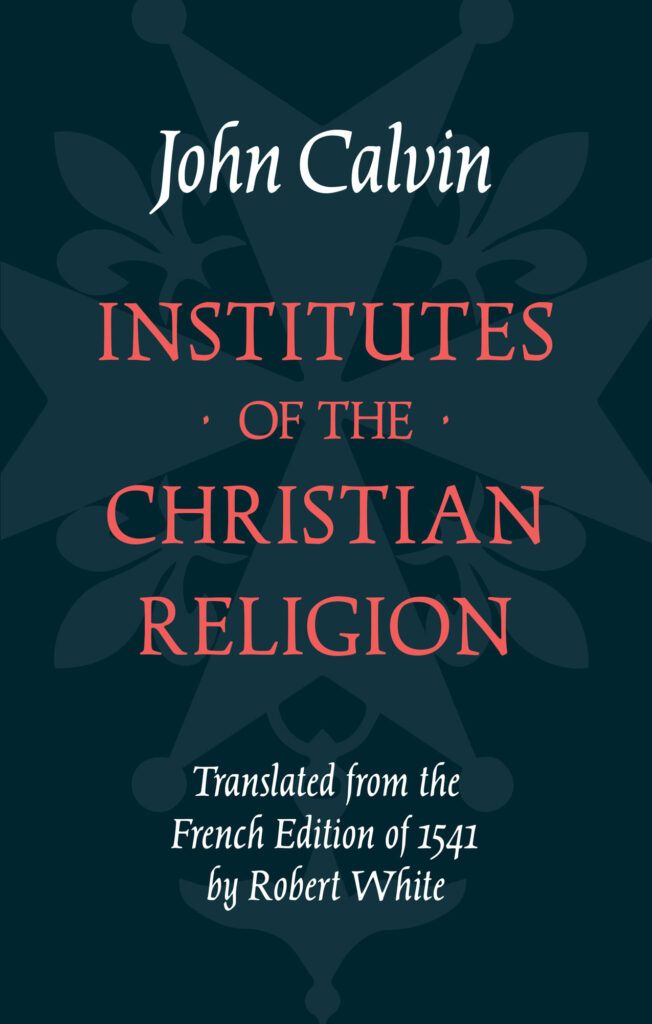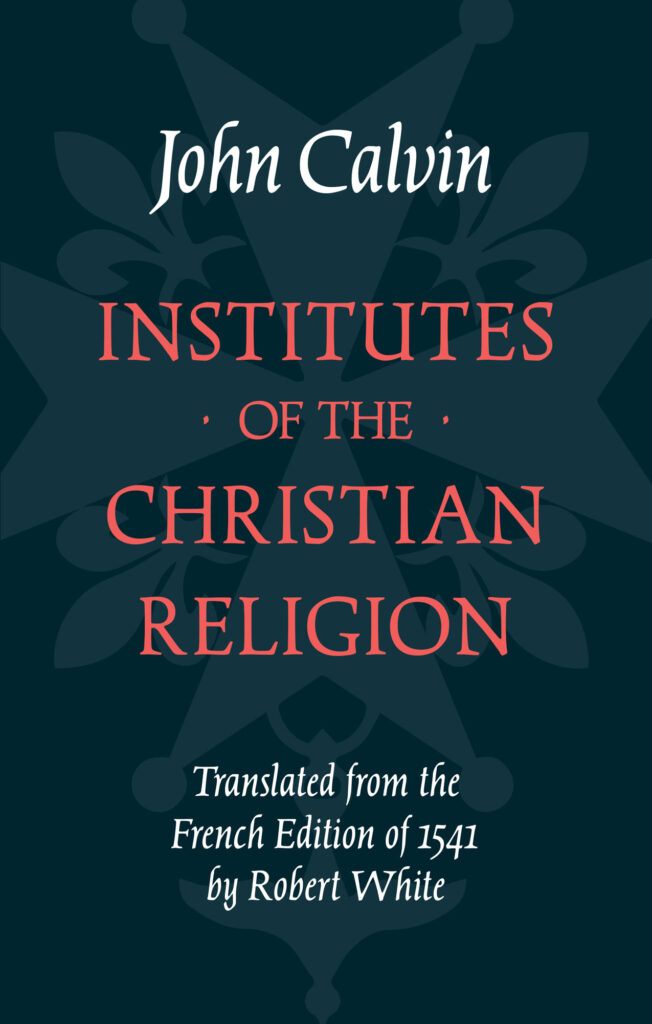Institutes of the Christian Religion: 1541 Edition
Formerly Published as "Calvin's Own Essentials Edition"
The Institutes of the Christian Religion is Calvin’s single most important word, and one of the key texts to emerge from the Reformation of the sixteenth century. Yet, as many who have purchased an English translation of the final Latin edition of 1559 know only too well, the sheer size of the work and the proliferation of technical details and polemical themes do not make for easy reading. It has left many wishing for an edition that avoided such things but yet kept intact the very heart and soul of Calvin’s teaching.
Such an edition is now available, and it is not the work of an editor or an abridger, but of Calvin himself. The Reformer’s 1541 French edition of his Institutes really ought to be better known than it is because it offers the reader a clear yet comprehensive account of the teaching of the Bible—of the work of Father, Son and Holy Spirit in creation, revelation and redemption, in the life of the individual Christian and in the worship and witness of the church. Here is doctrine but here too is life–shaping application, for the practical use of Christian doctrine is always Calvin’s abiding concern. The author of the Institutes invites us both to know and to live the truth, and thus allow God’s Spirit to transform us.
Robert White’s new translation of the 1541 French edition of the Institutes makes Calvin live once again, and the reader will be truly amazed at both the power and the relevance of the Reformer’s doctrine and application for Christian living in the 21st century
“Calvin’s Institutes remind us that there is a good and bad way to do theology. Speculative theology, which asks questions the Scriptures do not answer, or intuitive theology, which works upwards from man to God, is bad theology. The human mind cannot fathom the unfathomable. Calvin is adamant that only God can speak of God, and in words which accommodate themselves to our weakness. Since we do not recognize God in his works of creation and of providence, we must seek him in his written word, whose witness is sealed to us by his Holy Spirit. The Institutes of 1541 contain well over 2,000 biblical references, widely spread but with a marked concentration on the Psalms, Isaiah, the first and fourth Gospels, Romans and 1 Corinthians. Nor is Scripture a convenient peg on which doctrine may be hung, more or less at will; it is the indispensable foundation on which doctrine rests, the standard by which it is judges and the rule by which it is corrected.“
– Robert White (translator)
-
Cover Type
-
ISBN
-
Page Count
-
Weight
-
Publisher
-
Publication Date



